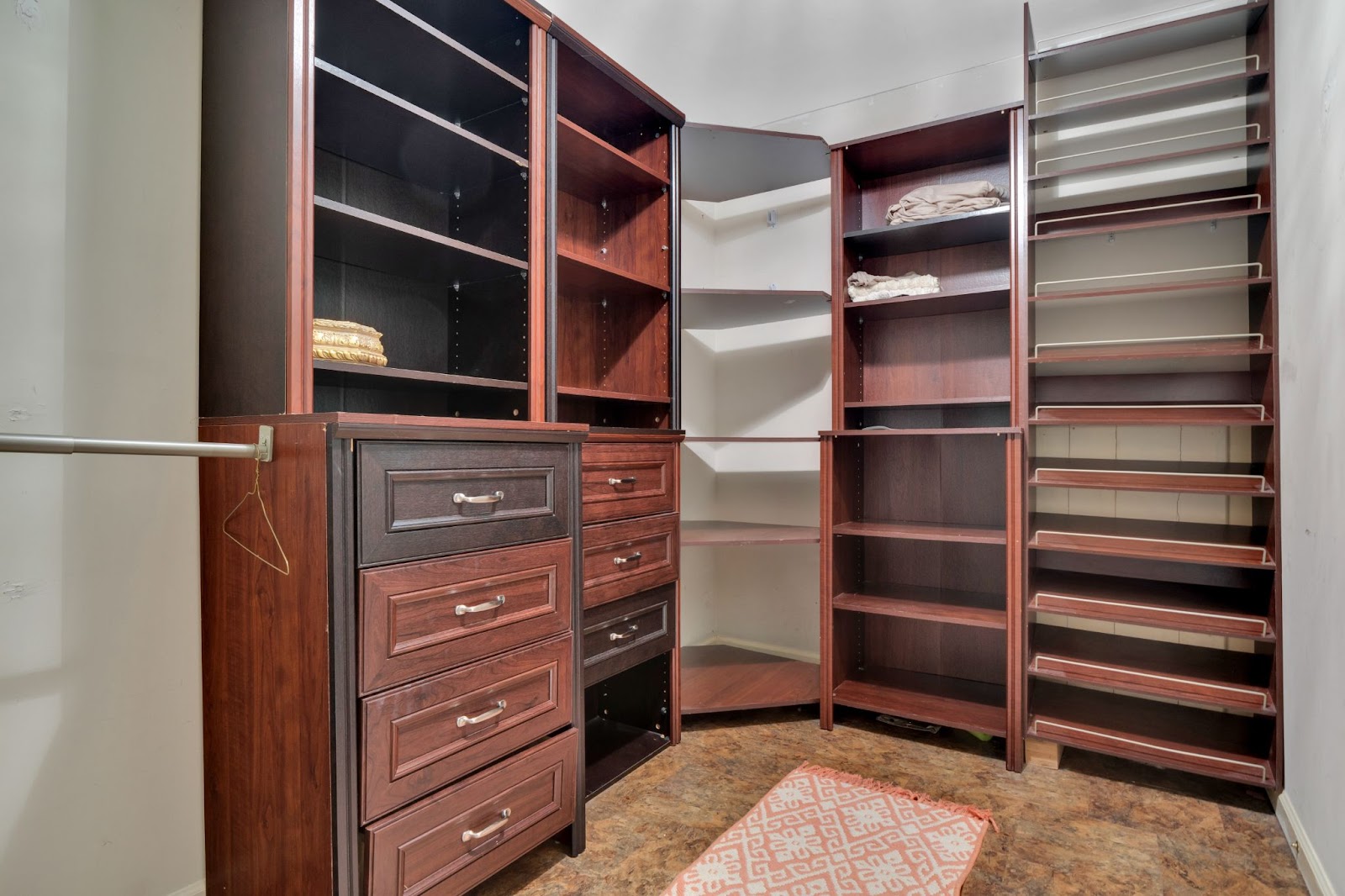A Top Investor's Guide to Rental Property Tax Deductions in 2023

What if I told you tax season could become your FAVORITE part of real estate investing?
I know we've all seen economic conditions hit the gutter over these last few years, but that doesn't mean we can't come out on top better than ever! If you're a property owner, turns out tax season can bring some nice weather after all...
Through the loopholes and pass-throughs I've discovered as an expert luxury short-term real estate investor, countless investors just like you have enjoyed large-scale deductions, saved precious income, and reinvested for greater profits down the road.
Rental Property Owners Have Power They Don't Even Realize!
You don't have to fear the taxman if you know how to work the field and score goals. Not into sports analogies? Okay, just think of it this way: a keen understanding of deductions means you keep more of your hard-earned money.
You're already putting in crazy hours, running around trying to juggle a thousand things at once. The last thing you want to do is have to pound your head trying to make sense of the IRS code for a rental property investment that was supposed to be passive.
Rental Properties Come With Many Unique Tax Bill 'Perks'
You're in luck! I've outlined all the top deductions, considerations, and little property tax gems so many rental property investors are missing out on. Worried about mortgages, insurance premiums, repair costs, and other business expenditures?
Don't fret about it, I've got you covered. Here is everything you need to know about your rental income and rental property tax deduction when it comes time to complete those lovely little forms. It's time to make tax deductions your new bestie...
What are the Tax Deductions for a Rental Property?
You got involved in the rental business because you want consistent cash flow, increased capital, and a diversified portfolio. But did you realize tax-deductible expenses are one of the biggest attractions to a rental property?
As a passive real estate investor in rental property, or one who rents out personal property, you will pay taxes differently than a real estate professional, such as an agent or broker. In other words, your rental property income and losses on rental real estate are classified differently by the IRS.
Through your rental business, you can deduct expenses for your rental property in these two common ways.
1. Ownership, Maintenance, and Operation of Rental Property
One of the most common rental property expenses is to own, maintain, and operate your rental property and rental business. You had to purchase the property. You've got all kinds of financing. You have to worry about wear and tear, furnishing, cleaning supplies, amenities, appliances, and utilities.

Depending on the nature of your rental properties, the type of business entity, and any professional services you use, your operating expenses may be minimal or sky-high.
We'll get into this in more detail later. Just remember, track everything and make sure you know your actual expenses so you can make critical tax deductions when the tax year nears. A rental property tax specialist can help you streamline this process.
2. Depreciation of Rental Properties for Tax Deductions
Your residential rental property can also undergo a process known as depreciation. Depreciation is one of the most popular tax deductions. In a nutshell, depreciation is a deduction on income performed annually that accounts for rental properties' deterioration and decreasing utility over their "useful lives."
The average "useful life" of a residential rental property is 27.5 years, depreciated at a rate of roughly 3.64% per year. There's a lot more to the tax benefits and use of depreciation, but for now, just know it's a very useful tool.
Don't Be Shy! Contact a Rental Property Specialist with ANY Questions/Concerns
We'll cover all things depreciation, tax deductibles, property income, rental property, and taxable income in a little bit. For now, rest assured knowing you at least have a very broad grasp of the types of tax-deductible expenses for rental properties.
So, if you ask yourself, what are the tax deductions for a rental property, you've got somewhere to start.
If you need help, have questions, or feel totally confused, never hesitate to consult a tax professional or contact a rental property investment expert with countless satisfied clients.
That said, let's dive a little deeper...
Rental Property Tax Deduction for Active and Passive Investors
Rental property tax deductions vary based on your level of involvement in your rental property. Generally, there are fewer tax-deductible expenses for passive real estate investors, as they are devoting less of their time and effort to managing, operating, and maintaining the property.
The IRS has three categories for determining eligible tax-deductible expenses and allowing tax deductions.
1. Material Involvement in Rental Property
This is the highest level of involvement and allows the greatest variety of taxable income. Materially involved real estate investors may be landlords or property managers themselves. They can offset any other income streams with their losses and avoid net investment tax, a tax on investment assets like stocks, bonds, and mutual funds.

How the IRS Defines Material Activity
The IRS tax laws consider your involvement to be material activity if you essentially functioned as a real estate professional. Although the criteria are specific, this basically means you're spending hundreds of hours during the year working in the rental business. This can refer to activities related to developing rental property, constructing rental properties, acquiring properties, and managing properties.
2. Active Involvement in Rental Property
This level of participation is not as active as material participation (even though it's called active). Essentially, this category covers many tax deductions for landlords who are making significant management decisions. This ultimately impacts what landlords pay when it's time to complete the tax return.
Rental Property Tax Deductions for Significant Management Decisions
Significant management decisions include coming up with rental policies, allowing tenants to move in, and giving the green light on expenditures.
In certain cases, active involvement will allow you to deduct as much as $25,000 of passive losses. However, this depends on the size of your modified adjusted gross income (MAGI). Be sure to consult a specialist about these important rental property deductions.
3. Passive Involvement in Rental Property
Last but not least is the truly passive activity level. Think of this as the kick-your-feet-up-and-uncork-the-wine-bottle level of participation. In this case, your rental property investment is a side investment, not a hustle. Because you're not directly involved, your losses are only used to offset passive income. These losses cannot be used to offset other taxable ordinary income.
Keep those personal expenses and business expenses separate!
As a Rental Property Owner, Take Advantage of These Tax Rules!
Each level of involvement leads to a different level of rental property tax deductions. Many investors and landlords decide to incorporate their rental property business as a Limited Liability Company (LLC). This means income is taxed as pass-through income.
If you're the only member of the LLC, you report rental income on your personal tax return and then deduct business costs for your LLC rental property tax deduction. You don't have to worry about excess paperwork or being doubly taxed like many corporations. Who wants double taxation??
If you're at all unsure, don't hesitate to consult a seasoned tax professional or tax law specialist about your real estate investments. I'm always happy to provide the tools and knowledge you need to excel in the investment game!
Don't miss out on the top tax advantages every real estate investor can use.
Make Sure to Report These Rental Income Sources on Your Tax Return
Before we get into every wonderful deduction for every wonderful rental property expense and rental business expense, let's talk about your rental property income.
I'm referring to the things you must declare to keep the taxman from barging down your door. Now obviously, you have to declare all rental income received, but did you know that this can be waaay more than just the monthly cash flow?
How exactly is rental income taxed, you ask? According to the tax code, you need to report all of the following.

Your Monthly Rent Checks
This one's a no-brainer. All rental property owners have to report this income. However, did you know that the rent money is taxable the year you receive it and not when it's due? In other words, if you get advance rent from an on-the-ball tenant, or require the first month's and last month's rent upfront, this advance rent must be treated as income for the year it's received.
Non Refunded Security Deposits
Typically, security deposits are not taxed because they are returned at the end of the lease. Unfortunately, not all situations go so swimmingly. Some tenants may damage your beloved property or even leave unexpectedly and vanish into thin air (Houdini, much?).
In such a case, you include the kept deposit as income and deduct the repair costs.
Non Obligatory Expenses
Sometimes, tenants may be super nice and easygoing and pay for rental expenses they don't have to, based on the lease. Whether it be some utility bill, a bill for professional services, or any other nonobligatory expense, this amount must be reported in the rental income. In many cases, it can be deducted as a rental expense later.
Atypical Exchanges
Tenants can be industrious and creative. Sometimes, they come up with an idea or offer that's impossible to refuse. Let's say a tenant wants to exchange his or her services for payment suspension. Perhaps the tenant fixes something in the rental out-of-pocket, refurbishes the place, or paints the walls. In exchange, you might not charge rent for a month or two.
The amount you don't charge must still be reported as income, even though you didn't receive any money! But don't worry. Because of this value exchange, you can deduct the agreed-upon value (i.e., $1,000, $2,000, $5,000) as an expense.
Nothing like a little bartering to get things done!
A Quick Note. Properties rented out for over 14 days of the year require that you report the rental income to the IRS. This income is taxed as ordinary income, which includes most income sources like wages, tips, rent payments, etc.
If you rent out a property for 14 days or fewer, you don't have to report the income or pay taxes on it.
Rental Property Tax Deductions Every Investor Must Know
Now that we've covered what to report as rental income, let's look at what we can deduct. These rental property tax deductions incorporate a lot of different expenses, so it's a good idea to consult an expert in this area before the tax year rolls around.

Typical deductions relate to purchasing, operating, and maintaining your property. The following deductions play a critical role in any investor's taxes.
Property Taxes for Rental Property Owners
Don't we just love taxes?
A recurring company expense for rental property investors, property taxes actually aren't as bad as you may think. Whereas homeowners can only deduct up to a total of $10,000 in property taxes, there is no limit on businesses' property taxes. State and local tax deductions cover deductions on property taxes and income taxes, or sales taxes in place of income taxes.
Sales tax and income tax aside, some investors can deduct the full amount of their property taxes as a business expense.
Travel and Transportation Expenses
Ever have to hit the highway and drive long and far to check up on your property? To address a pressing concern? To meet the tenants in person? Well, guess what? Your time and money are not for naught! When you have to pay to travel to your property, for certain business reasons, you can deduct that amount.
Improvements and renovations are different. If your travel expenses are because you're traveling to improve the property, you do not deduct them. Rather you can recoup these expenses through the improvements themselves.
Depending on the latest IRS requirements, you may either deduct travel expenses based on standard mileage calculations or the actual expenses incurred.
Renovations, Repairs, and Capital Improvements
We all want to ensure our properties are in tip-top shape, looking good, feeling good, and keeping our clients happy. If repairs and fixes are necessary, from dealing with leaky pipes to patching old roofs, expenses for repairs are deductible for the year they're paid for.
Then there are renovations and capital improvements. Capital improvements are usually improvements made to increase the value of the property.
Are Capital Improvements a Deductible Expense?
You might upgrade a restroom, add a brand-new porch, increase the interior space, or any number of other improvements that extend the property's useful life, increase its market value, or modify it for new uses.
Overall, capital improvements are not a deductible expense until the property is sold. At that point, the expenses related to capital improvements are added to the property's cost basis.
Sounds a little confusing? Sometimes, there is a fine line between capital improvements and extensive repairs. Be sure to contact an expert so you stay in good standing with the IRS.

Depreciation on Your Rental Property
We briefly discussed depreciation earlier, but now let's get into the details. This preferred deduction allows you to deduct certain expenses related to the property over its useful life.
You can depreciate your rental property from its fair market value, assuming:
- You are the owner and use it for income-producing activity.
- The property deteriorates and diminishes through a so-called useful life
- The property is expected to last over 12 months
- The property has not been discarded or unused for business purposes
When depreciating, you generally must only depreciate the building and not the land or landscaping. If you decide to outright sell the property later and make more than its depreciated value, you will owe taxes.
Deductions for Mortgage Interest
These tax deductions for landlords and investors are important because they can reach pretty large amounts. Although you cannot deduct expenses related to commissions and appraisal fees, you can deduct interest as high as $750,000.
It's no wonder the mortgage interest deduction is so important. Because your rental property is an investment property, you should deduct mortgage interest as a business expense.
When tax year arrives, just remember that home mortgage interest is different from rental property interest. Rental property mortgage interest is reported on Schedule E and mortgage interest for your personal property goes on Schedule A.
Additional Expenses You Can Deduct
There are some other nifty deductions you can take, especially for unconventional expenses you might not have considered. Each rental property tax deduction that follows is separate from typical ownership, maintenance, and operation expenses.
These include:
- Home Office Deduction
- Advertising and Marketing
- Lawn Maintenance
- Independent Contractors and Employees
- Losses From Weather Events, Vandalism, and Thefts
- Professional Services (i.e., Property Management Fees, Lawyers, Accountants)
- Utilities
- Insurance Premiums (i.e., Workers' Compensation Insurance and Liability Insurance)
- Personal Property Costs (i.e., Furniture)
There are many ways you can take advantage of the tax code and make deductions. Whether it be liability insurance, damages to your property, cleaning services, buying a desktop for your home office, or refurbishing that perfect room, you've got a lot of recordkeeping to do!
How to Report Your Income and Take Your Deductions Accurately
Using Schedule E on the tax forms, you can list numerous miscellaneous expenses. Just be careful. Ensure you have proof of each cost, especially repairs and maintenance expenses, or you might not get the deductions you deserve. Documentation, documentation, documentation.

It's a good idea to log your activity and participation, no matter how active or passive. You can do this through spreadsheets, schedules, diaries, and more.
Forms and Schedules for Rental Income
Schedule E is also used for reporting income and depreciation on the 1040 or 1040-SR for senior citizens. If you own over three rental properties, you'll have to complete at least a couple of Schedule E forms.
Some investors can even deduct 20% more of what is called qualified business income (QBI). Of course, this all depends on some rather strict IRS requirements (surprise surprise). To qualify for this deduction, your rentals must be considered a "trade or business under section 162" and meet other specific criteria.
From insurance premiums to occupancy tax, marketing costs, utility expenses, and everything in between, the range of tax deductions is large and varied. If you're at all unsure, you can always learn from a leading rental specialist with firsthand experience in taxes and investing.
Rental Property Tax Deduction Made Easy
For the longest time, I used to fear tax season. It was like a dark cloud on the horizon. Whether I expected to get money back or knew I'd be coughing up some serious dough to Uncle Sam, I always had anxiety. I felt like I was missing something. Like I was being played, used, manipulated, watching my hard-earned dollars drain away again and again.
Since becoming a luxury short-term rental investor, all of that has changed.
If you dread tax forms or aren't sure if your local tax expert is optimizing your deductions, you're not alone. Every tax season, untold numbers of people leave money on the table. They make mistakes, miss opportunities, and fail to use the loopholes that only the super-rich seem to know and exploit.
Property Tax Deductions Don't Have to Be Difficult
Let's change that! I'm here to provide the full spectrum of tools, knowledge, and resources any investors - new or old, experienced or virtually clueless - can use for success.
You've worked hard and long enough. You've zipped around with duties and obligations, burned the midnight oil, stayed up stressing over bills and debts, and now you have to think about all the pressures of taxes too?
I say no.
When you get involved with my tailored, proven courses, you get a one-of-a-kind education that makes you money consistently, profitably, and for the long term. You also learn great ways to ensure you're fully maximizing your hard-earned dollars, never giving away freebies to the IRS.
From my 6-Figure Mid-Term Rental Workshop to my Funding Super Pack and AirDNA Workshop, you'll know exactly what to expect from your luxury investment properties. Never go blindfolded and never get blindsided.
Enter every short-term rental investment with confidence, class, and the acumen to make a sky-high ROI. With my training and resources at your disposal, real estate investing can open up a whole new lifestyle of freedom, fun, and prosperity.
Sounds too good to be true? Learn how we can help you maximize your tax deductions in 2023. Feel free to book a call with a Short Term Gems team member today!
Are You Ready To Dive In?
Dare to discover the life that awaits beyond the Luxury Short Term Rental Academy doors.
Let's Get Started